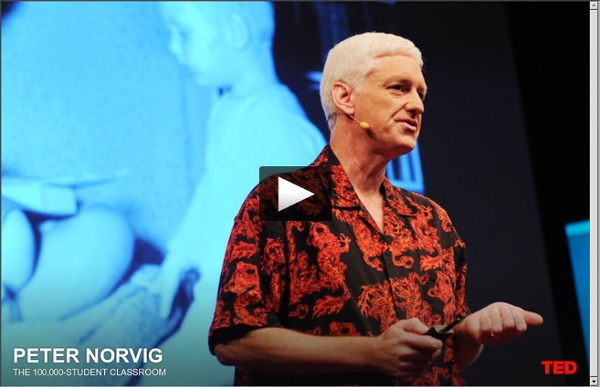



http://www.ted.com/talks/peter_norvig_the_100_000_student_classroom.html
Open Translation Tools A translation memory, or TM, is a database that stores paired segments of source and human translated target segments. These segments can be blocks, paragraphs, sentences, or phrases. Translation memory does not apply to word level pairs, which are covered by translation glossaries. A translation-memory system stores the words, phrases and paragraphs that have already been translated and aid human translators. The translation memory stores the source text and its corresponding translation in language pairs called “translation units”. Translation memories are typically used in conjunction with a dedicated computer assisted translation (CAT) tool, word processing program, terminology management systems, multilingual dictionary, or even raw machine translation output.
Top 10+ TED Videos On Education & Learning TED offers great ideas through its videos. Today we’ve featured more than 10 of the best videos on education and learning from some of the greatest thinkers and innovators who have spoken at TED. The videos below touch on major topics in education around the globe: What’s your favorite TED video on education and learning? Advocacy Partner Professor's TEDx Talk Shares Why We Need Teachers I was messaged on Twitter the other day by Professor Gustavo Reis . In his TEDx talk, he discusses the importance of education and, more importantly, the need for engaged students. Below are a few takeaways from the video that I found particularly interesting.
TEDx France le portail officiel de tous les TEDx français Il est le fruit de la volonté de TED de développer localement la diffusion de TED et des TEDx. Comme les TEDx, il est à la fois indépendant et sous licence TED. Ce portail est le lieu qui rassemble et relaie l’information de tous les TEDx francophones, point de rencontre de et avec la communauté. What My Dog Can Teach Us About Managing 1:1 Classrooms I have two dogs, Morrison and Max. Morrison is my older dog, he's between ten and thirteen years old. Morrison was an adult when I adopted him and he's never gotten into trouble when left alone in the house.